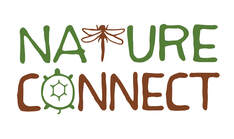1. Is forest and nature school like camp?
Yes and no. It is similar to some camps in that it takes place in a natural setting. It's different from camp in its focus: to practice teaching and learning together in a way that is inquiry-based, and flows from the questions and ideas that children naturally create. Camp sessions are often content-driven to learn particular skills. This content is usually determined by the staff person. Each forest school session will contain "content" - but that content is driven by observations our leaders make of the children in the group - what is interesting them, and where are the "edges" that we can push a bit to dig deeper and learn more.
2. Is forest and nature school like school?
Yes and no. Today, there is much emphasis on inquiry-based learning in our public schools. Many educators are trying to teach in this way. Many schools are curriculum-driven, teaching to standardized tests and report cards, with various outcomes expected by the end of grade levels. While there is certain information and teaching that a forest and nature school leader might pull out of their pocket, this approach is more question-driven than curriculum-driven. Children's interests and interactions drive the content of the program, with a significant chunk of time reserved for exploring, individually or in groups.
3. How is it different than other forms of outdoor education?
There are plenty of fantastic types of outdoor learning experiences for children, such as:
Each of the above experiences has its own goals and underlying methodologies. In the same way, a forest school program is one that follows the forest school philosophy of teaching and learning. Each forest school program is unique; it caters to the needs and interests of the children in that group, and it grows from the land where it is based. Outdoor education is often a one-time event that has set curriculum expectations. In Canada, forest school facilitators recognize that Indigenous teachers have been living, teaching, and learning on these lands since time immemorial. Because of this, we seek to centre Indigenous voices and pedagogies within our programs.
Forest school is repeated and regular access to an immersive experience in the outdoors within a certain area. Forest school employs an emergent, inquiry-based, play-based style of teaching and learning that fosters a deep connection to the land and waters. Teachers are learners, and the learners are teachers. Some of our most memorable teachers are the trees, plants, and creatures that we observe and learn from over time.
Yes and no. It is similar to some camps in that it takes place in a natural setting. It's different from camp in its focus: to practice teaching and learning together in a way that is inquiry-based, and flows from the questions and ideas that children naturally create. Camp sessions are often content-driven to learn particular skills. This content is usually determined by the staff person. Each forest school session will contain "content" - but that content is driven by observations our leaders make of the children in the group - what is interesting them, and where are the "edges" that we can push a bit to dig deeper and learn more.
2. Is forest and nature school like school?
Yes and no. Today, there is much emphasis on inquiry-based learning in our public schools. Many educators are trying to teach in this way. Many schools are curriculum-driven, teaching to standardized tests and report cards, with various outcomes expected by the end of grade levels. While there is certain information and teaching that a forest and nature school leader might pull out of their pocket, this approach is more question-driven than curriculum-driven. Children's interests and interactions drive the content of the program, with a significant chunk of time reserved for exploring, individually or in groups.
3. How is it different than other forms of outdoor education?
There are plenty of fantastic types of outdoor learning experiences for children, such as:
- environmental education
- field studies
- bushcraft
- horticulture
- Earth Education
- adventure programming
- Coyote Mentoring
- wilderness skills
Each of the above experiences has its own goals and underlying methodologies. In the same way, a forest school program is one that follows the forest school philosophy of teaching and learning. Each forest school program is unique; it caters to the needs and interests of the children in that group, and it grows from the land where it is based. Outdoor education is often a one-time event that has set curriculum expectations. In Canada, forest school facilitators recognize that Indigenous teachers have been living, teaching, and learning on these lands since time immemorial. Because of this, we seek to centre Indigenous voices and pedagogies within our programs.
Forest school is repeated and regular access to an immersive experience in the outdoors within a certain area. Forest school employs an emergent, inquiry-based, play-based style of teaching and learning that fosters a deep connection to the land and waters. Teachers are learners, and the learners are teachers. Some of our most memorable teachers are the trees, plants, and creatures that we observe and learn from over time.

